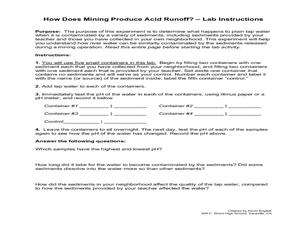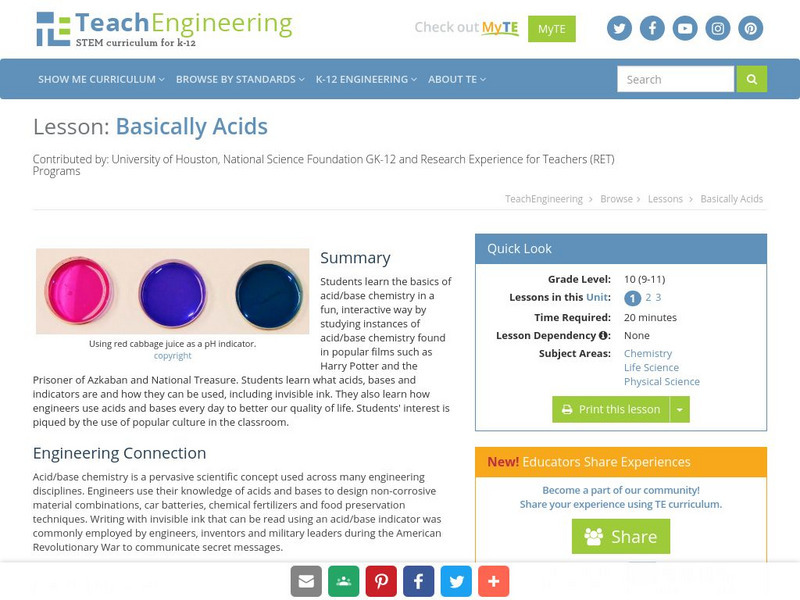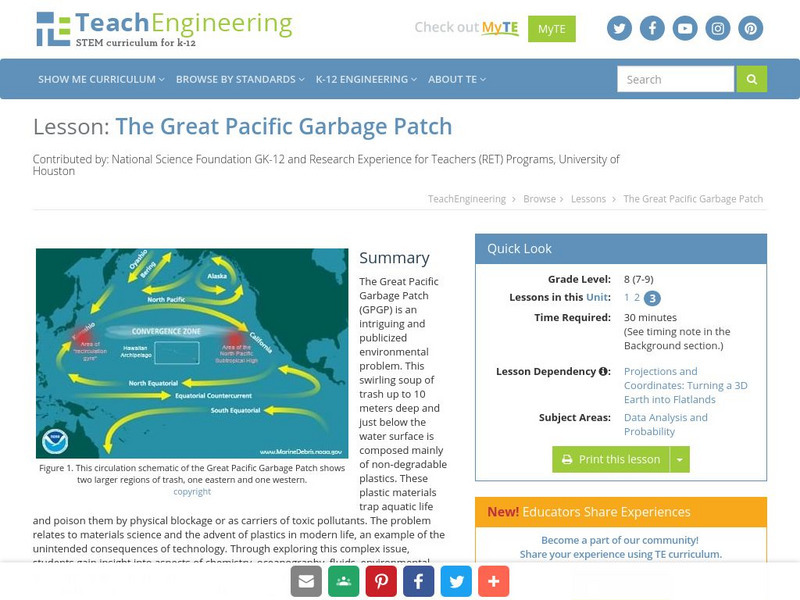Curated OER
The Breathtaking Nature of the Urban Explosion, Part 2
Students explore ozone levels. They measure the concentrations of ground-level ozone in the atmosphere. Students observe changes in the concentrations of ozone over time. Students complete a data sheet to record ozone readings over a...
Curated OER
Cosmic Collisions and Risk Assessment
In groups, students create their own scientific impact experiments using ordinary materials, and observe and measure results with a variety of impacting bodies and velocities.
Curated OER
Frozen Water Before? I'm Sure You Have; But I Bed You've Never Frozen Salt Water! Water!!
Students examine what happens to salt water when it freezes. In groups, they measure density and salt concentrations in different samples of water and record its freezing time. They discuss the relationship between water density and...
Curated OER
Nanaotechnology: Small Science, BIG DEAL!
Young scholars read an article that introduces them to the science and applications of nanotechnology. They discuss the the everyday examples of how nanotechnology is and can be used. In small groups, they observe and make inferences...
Curated OER
How Does Mining Produce Acid Runoff?
Students examine how mining and other industry operations can lead to acid runoff. In this mining lesson students study weathering and complete a lab on it.
Curated OER
Powering a Green Earth
Students compare and contrast renewable and nonrenewable energy. For this environmental science lesson, students discuss the importance of going green. They identify the different components in a power grid system.
National Geographic
National Geographic: Human Impacts on Marine Species
Students learn about three examples of human impacts on marine life: migration patterns and shipping, algal blooms and water chemistry, and marine debris. Some of these impacts are due to human activity in the ocean, and some impacts on...
Alabama Learning Exchange
Alex: The Evidence of Chemistry
The learners will learn to identify evidence that a chemical reaction has taken place. They will use the Internet to research evidence and find examples. They will look around their school and neighborhood for examples. They will perform...
PBS
Pbs Teachers: Scientific American: Beneath the Sea: Light Stick Chemistry
Explore chemiluminescence and describe how the temperature of the chemicals that combine in a light stick affects the reaction. Apply that knowledge to understand bioluminescence in deep-sea marine life.
TeachEngineering
Teach Engineering: Basically Acids
Students learn the basics of acid/base chemistry in a fun, interactive way by studying instances of acid/base chemistry found in popular films such as Harry Potter and the Prisoner of Azkaban and National Treasure. Students learn what...
TeachEngineering
Teach Engineering: The Great Pacific Garbage Patch
The Great Pacific Garbage Patch (GPGP) is an interesting and somewhat publicized environmental problem. A swirling soup of trash up to 10 meters deep and just below the water surface is composed mainly of non-degradable plastics. These...
Science Education Resource Center at Carleton College
Serc: Investigating Changes of State: Chemical and Physical Changes
In this chemistry lab, students will investigate, observe, and describe a variety of chemical and physical changes in matter. They will understand that this is part of everyday life.













